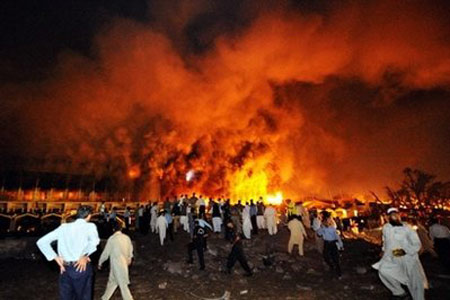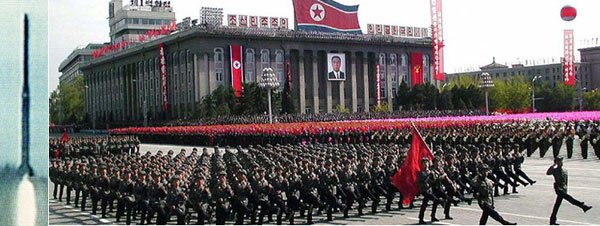The first is an Egyptian hostage crisis, in which European tourists and Egyptian guides were kidnapped by African kidnappers that were demanding a ransom. They were let go (story from the hostages here) recently, but with some odd international events. There are rumors that the Italian government paid a ransom for the hostages' release, but the Italian government denies this, saying that they and Egyptian commandos freed the hostages in a raid; the hostages claim they know nothing of any raid, that they were simply told to go.
This is not necessarily a contradiction--it could be that the hostages were let go while the raid was coming (and the kidnappers had advance warning), and then the shootout happened. It's unlikely that no shootout happened at all, but if the commandos didn't find any hostages, one would think that they'd mention it in their reports about the alleged raid. Something is fishy here, but it may simply be an overly-optimistic PR campaign by the involved governments, trying to repeat the success of Columbia/US against FARC a few months back. Sadly, if it turns out there are inaccuracies here, it may have backlash PR repercussions against counter-terror campaigns.
 The second interesting piece comes from Somalia: a Ukrainian ship full of Russian tanks was hijacked for a $20 million ransom off the coast of Eastern Africa. The US and Russians both sent ships, and have surrounded the ship. In short, it looks like the standoff is close to being over--shots have been heard on the ship, and three of the pirates are dead. This shows a clear breakdown of leadership on the vessel--some pirates are probably trying to hedge their bets and get out now, while others want to play brinksmanship. The fighting means that pressure is mounting for the pirates, and that they are unlikely to hold together.
The second interesting piece comes from Somalia: a Ukrainian ship full of Russian tanks was hijacked for a $20 million ransom off the coast of Eastern Africa. The US and Russians both sent ships, and have surrounded the ship. In short, it looks like the standoff is close to being over--shots have been heard on the ship, and three of the pirates are dead. This shows a clear breakdown of leadership on the vessel--some pirates are probably trying to hedge their bets and get out now, while others want to play brinksmanship. The fighting means that pressure is mounting for the pirates, and that they are unlikely to hold together.But internationally, it shows the Russian and American navies working together in the interest of arms control--something that will go a long way towards healing the rifts from the Georgian invasion. Russia's PR game continues with this latest deployment of ships, and people are likely to calm down about Russia in the future if they continue such cooperative measures.














